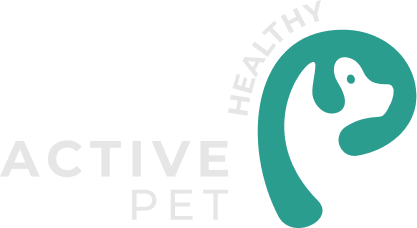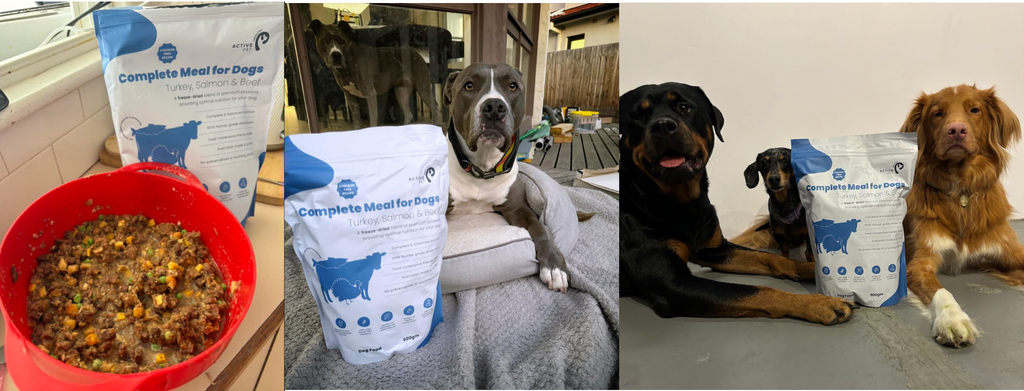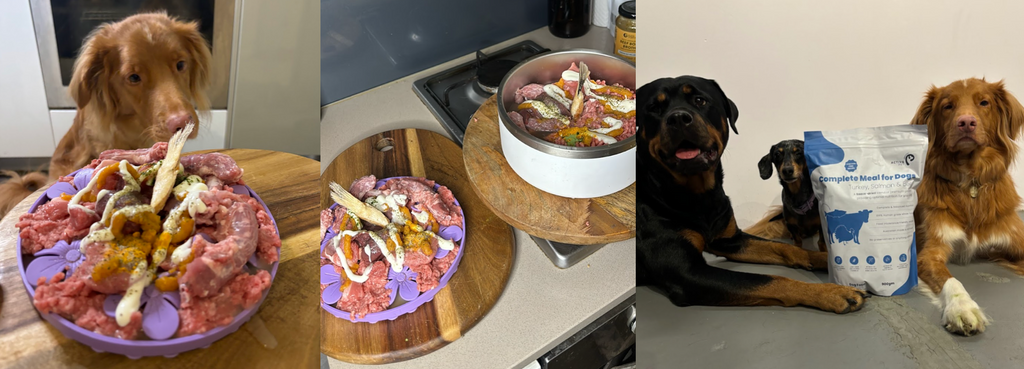
Could Kibble Be Making My Dog Overweight?
Similarly to humans, maintaining a healthy weight for your dog is an essential component to improving chances of your dog living a healthy and long life.
A lot of dog parents rely on gut feeling to determine if their dog is overweight and are unaware that just by a few extra kilograms that might not be visible to the eye, is damaging their dogs health on a daily basis.
According to the Association for Pet Obesity Prevention (APOP), 59% of dogs were classified as overweight or having obesity in 2022.

When a dog is overweight, it comes with significant health consequences; it’s linked to illnesses including Type 2 diabetes, osteoarthritis, high blood pressure, chronic kidney disease, cancer, heart failure, skin disease, urinary tract disease, and even decreased life expectancy.
Being overweight can also mean that your dog is lethargic and unable to live their happiest and most active life.
A dog’s health and longevity will be affected by being overweight. Studies have shown that by maintaining a healthy body weight, a dog's lifespan can increase by up to two and a half years.
Although there are many factors that contribute to a dog's weight, such as individual genetic makeup, age, activity level, and spay/neuter status, a dog’s food plays a massive role in the makeup of their weight.
Could kibble be making your dog overweight?
Kibble has been and still is the default food for dogs since the late 50s, for almost 80 years.

The majority of dog parents have the best intentions for their dog, they want to provide the best for their dog with what they have.
When a new dog joins the family, most dog parents automatically head to the store to pick up kibble for their new family member without second guessing if this is the best decision.
While there are many reasons why kibble is not the best option as a daily food source for dogs, one of the main reasons being that it contributes to the on-going dog obesity epidemic.
One of the issues with kibble is the majority of the makeup found inside most commercial kibble foods consists of grains and other high-starch carbohydrates like high-glycemic, genetically engineered corn, wheat, rice, or potato.
This creates metabolically stressful insulin, glucagon, and cortisol spikes throughout the day. The high carbohydrate content also contributes to the growing epidemic of pet obesity.
Even though commercial kibble brands are also selling grain-free kibble, it often contains high-levels of starchy carbs including legumes and lentils. Grain-free kibble is also detrimental to dog’s health because it replaces the traditional grains with a high proportion of potatoes and legumes, which affects the taurine levels in a dog.
In recent studies, there has been a correlation between taurine deficiency and a serious heart disease in dogs called Dilated Cardiomyopathy (DCM).
Kibble also contributes to dogs being overweight with their broad and vague feeding guidelines on their bags.
Commercial kibble companies don’t take into account an individual dog’s needs. It is very easy to over-feed a dog with their feeding guidelines, especially the kibble bag guidelines always err on the side of too much food.
Guidelines on kibble bags usually recommend a weight range paired with a corresponding range of food amount. For example, they might recommend that any dog between 5 and 9 kg is fed between one and two cups a day. That is a huge gap, and that gap creates space that could prevent a dog’s health from thriving.

Similarly to humans, a strong diet is always the first line of defence for a dog’s health. Instead of kibble, feeding them minimally processed fresh foods provides more moisture, high quality protein, more natural fibre, and highest quality antioxidants will help your dog to thrive in their life, they will feel better and look better!
You can see our air dried and freeze dried dog food here which is high in protein and low in any carbs here

And you can see over 70+ fresh dog food raw dog food recipes here




